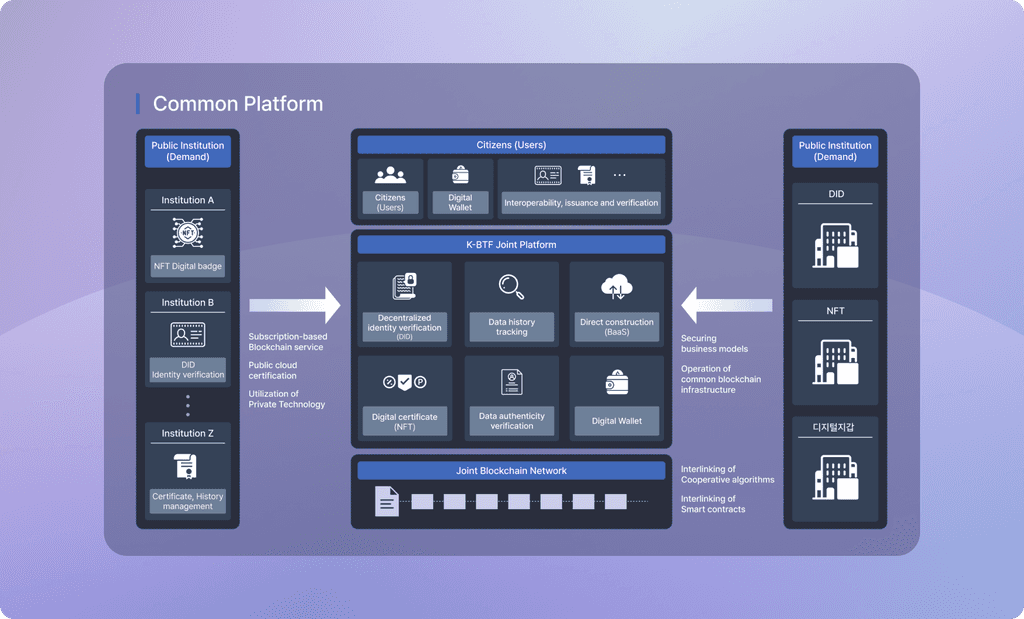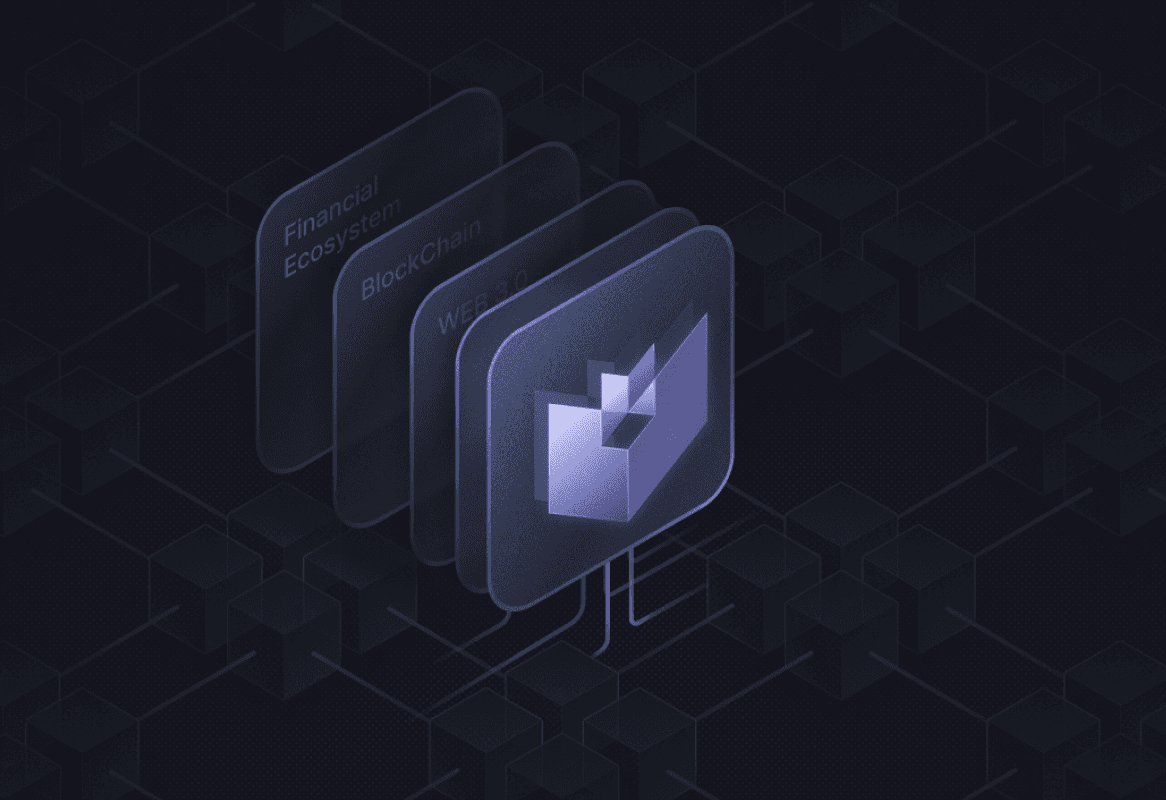Key Features of K-BTF
01
02
03
Facilitates cross-platform data exchange, minimizing reliance on private platforms and promoting fair competition.
04
Ensures data integrity and secure management, safeguarding the quality of public services.
05
Ensures secure protection of private and public data through standardized security protocols and verification systems.
06
Leverages private technology to innovate public services and enhance their societal impact.
Public Identity Verification
Enables secure and efficient verification of digital identities, such as e-resident cards and e-passports, through decentralized identity (DID) services.
Digital Credentialing
NFT-based credential issuance and management enable the use of degrees, licenses, and certifications in public services.
Data Trust and Verification
Ensures data integrity and prevents tampering in public documents, contracts, and logistics data through traceability and authenticity verification.
Custom Blockchain Network through BaaS
Enables seamless construction and operation of scalable blockchain networks for both public institutions and private enterprises.
Smart City
Enables integration of smart city services such as transportation, public facilities, and digital payments through digital wallets.
Healthcare








